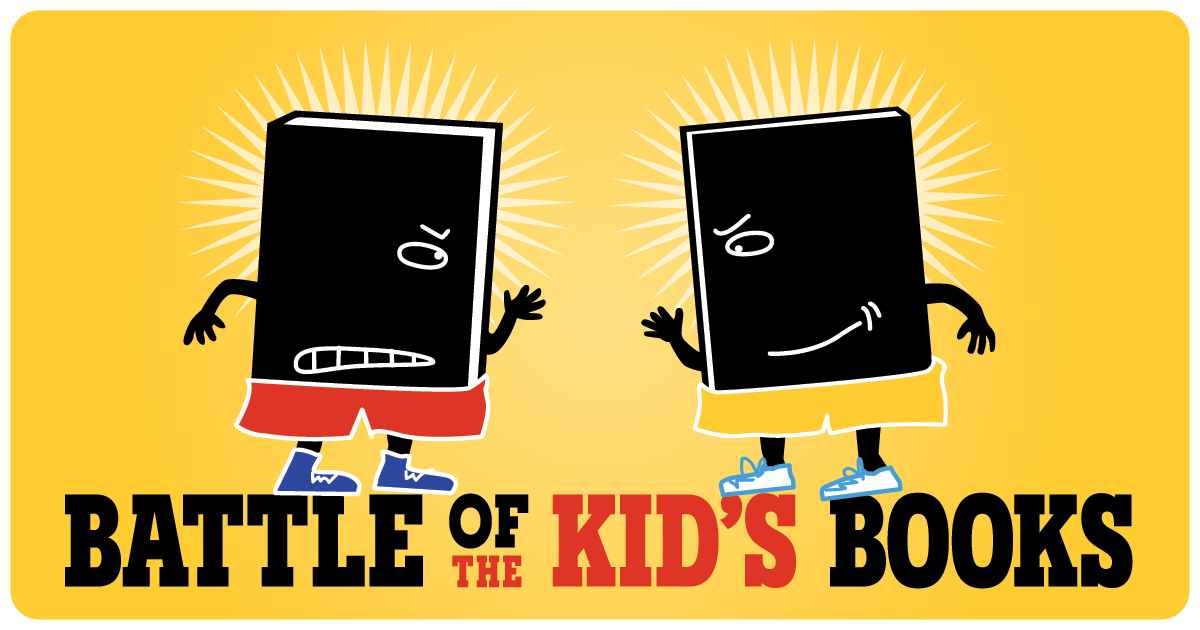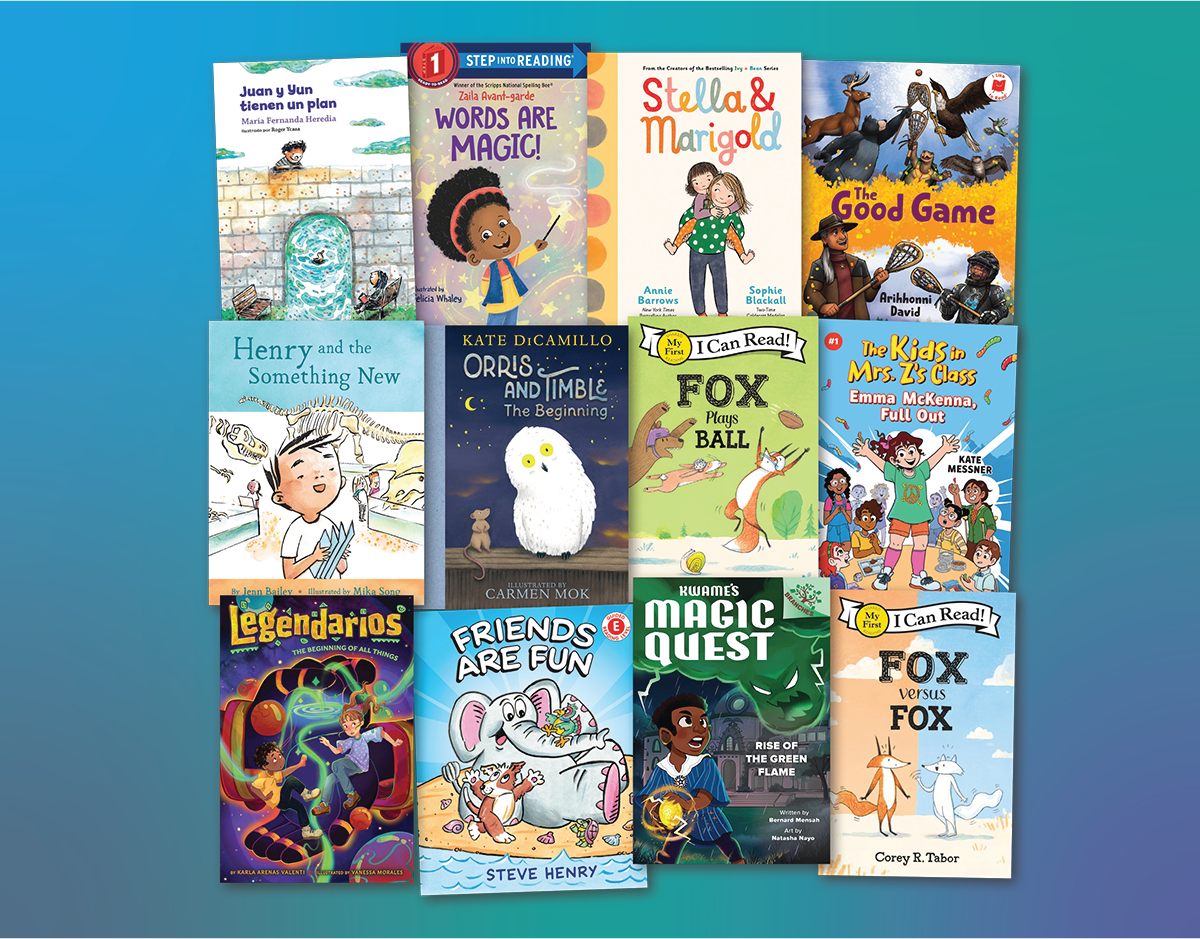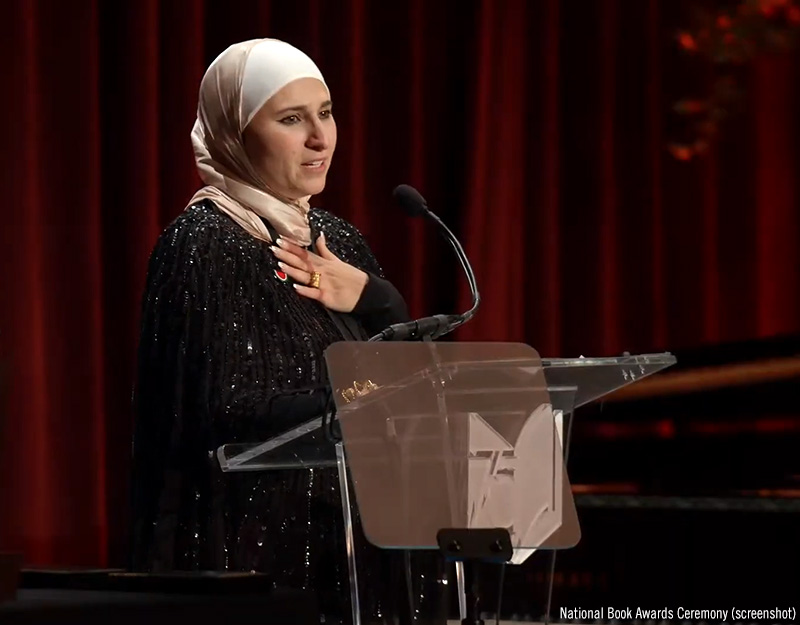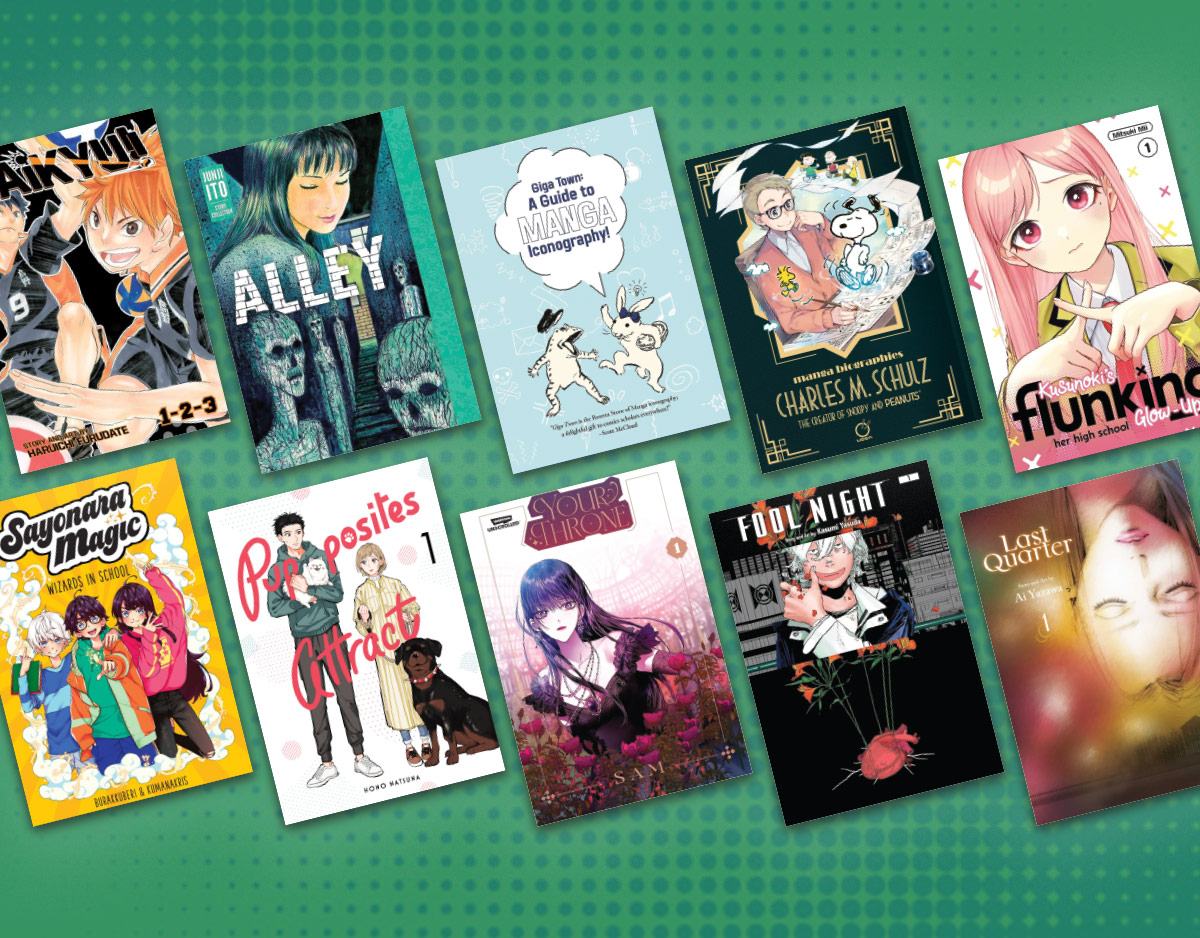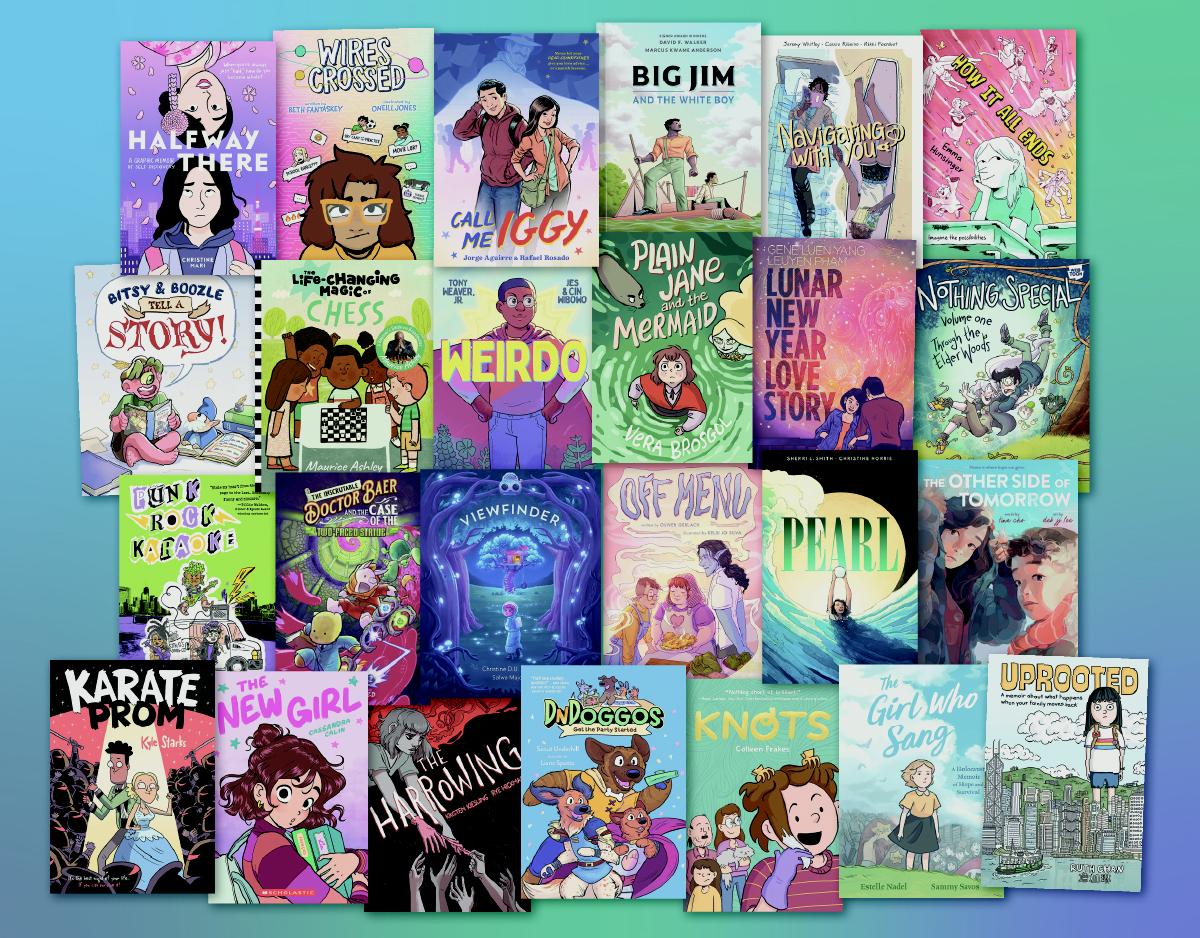SCROLL DOWN TO READ THE POST
Round 3, Match 1: Echo vs Gone Crazy in Alabama
|
JUDGE – Kelly Loy Gilbert |
|
| Echo by Pam Muñoz Ryan Scholastic Press |
Gone Crazy In Alabama by Rita Williams-Garcia Amistad/HarperCollins |

I am woefully unread in middle grade literature, and so as luck would have it this was my first introduction to both Rita Garcia-Williams and Pam Muñoz Ryan. Both GONE CRAZY IN ALABAMA and ECHO are luminous historical fiction, shining a light on system injustice, racism, poverty, Nazism, war, segregation, slavery, the KKK–issues that continue to reverberate all too loudly today–and make them relevant and engaging to a young audience. Both are character-driven, sentimental and, at their core, deeply good-hearted. And a Coretta Scott King Award and a Newbery honor–in my opinion, both could easily be the Battle of the Kids’ Books winners.
And yet! Both, sadly, cannot advance to the next round.
GONE CRAZY IN ALABAMA is a quiet, searching, and often hilarious story that elevates the past to great importance in the present. Each sister–Delphine, Vonetta and Fern––is vividly rendered. Watching Delphine turn to books to help her make sense of the world and watching Fern’s budding animal rights activism were moments to savor. And the scene where Delphine’s family watches the moon landing–I want that scene as my ringtone so I can listen to it every single day. It was so funny, such a pitch-perfect portrait of a multigenerational family, and yet it also captures something incredibly profound about our loved ones–that so often people embrace contradictions, particularly in a constantly shifting world.
I was struck by how real and complex the characters were, particularly the adults, and how true the portrayals felt. Because, yes, sometimes adults are petty and vindictive. Sometimes they treat you unfairly, or they’re complicit in injustice, or they steal the money you’ve been saving to see the Jackson Five or to buy drugs. They hold onto internalized racism and they cling to survival strategies that may seem ugly or inscrutable. They feud and lie and refuse to forgive and and they abandon you and your sisters for their work and they ride with the KKK. Delphine was not protected from so many of the realities of the world, and seeing everything around her through her twelve-year-old eyes was at times astonishing, refreshing and heartbreaking. (Though I realize there are full novels devoted to Cecile and Mrs.–which I cannot wait to read–I did wish we’d seen a little more of them, particularly Mrs., in GONE CRAZY.)
GONE CRAZY is a story that moves more slowly than ECHO, and the stakes here take longer to reveal themselves. In a world where danger lies everywhere–the menacing sheriff who’s a member of the Klan, the loss that’s already visited the family and often threatens to swallow it–the story patiently chooses to focus on a more internal threat: how people can choose again and again against the bonds that matter most.
For a nearly six-hundred-page book, ECHO is surprisingly gripping and, I’d even say, a quick read. The structure is ambitious–three separate stories within two framing stories–and the writing lyrical, the interior design absolutely lovely. The book is immersive and convincing and drops you instantly into its lush, magical world, everything–emotions, stakes–heightened as if in Technicolor.
In ECHO, people are good or evil and rarely (with some notable exceptions) both, befitting of the book’s fairy-tale roots. ECHO’s is a world where the pure-hearted fight against systemic injustice that constantly threatens to overwhelm. In Nazi Germany, Friederich finds his whole family threatened and torn apart by politics. In 1930s Pennsylvania, Mike must find a way to protect his little brother from a system that refuses to view orphans as humans deserving of rights and dignity. And in World War II-era central California, Ivy faces down all kinds of prejudice while her brother fights in the war. These are heroes and underdogs to root for whole-heartedly, and Muñoz Ryan beautifully weaves in historic events and details without ever losing sight of her characters at the forefront of the story.
Some of the most remarkable moments in the book happen under the employ of a narrative sleight of hand that GONE CRAZY uses as well: ECHO leads us to believe we’re at the brink of destruction, multiple times, only to later reveal that in fact the best-case scenario has happened, and all is fine after all. In ECHO, I think, we can read this through the lens of a fairy tale–just as the harmonica saved Kenny Yamamoto’s life in a miraculous way during wartime, it also miraculously saved Friederich, Mike and Ivy, too. And yet while I felt those miracles were part magic, certainly–the magic of hope and of goodness in the world and of right triumphing after all, even in the face of the worst kind of injustice–they were also part hard-won character growth that Muñoz Ryan seeded throughout the story. Friedrich, for instance, at the beginning of his story a boy too afraid to walk down a street without his father, embarked on a dangerous quest at great personal risk to save his beloved father. Mike constantly had to risk the unknown and act selflessly to protect the brother he loved. Ivy had to grow up so quickly in her older brother’s absence, and had to learn whether or not she could trust her own fears. And while I can sympathize with a reader who might feel the cliffhanger endings wrapped up too neatly in the end, I also felt they achieved one of the purest aims of any story: in those moments where the stakes were the highest of each character’s life, you got to see–and so viscerally feel–a crystallization of what mattered most for each character and who, at their very core, they truly were. The circumstances revealed their true selves. (And who could begrudge these characters the very happiest of endings, no matter how neatly or improbably such endings might come?)
Also, I cried like eleven times reading ECHO. So there’s that.
Both of these beautiful, profound books are instant classics written by literary giants, hopefully destined to remain in libraries and classrooms for years to come. Picking one to advance is a nearly impossible task.
But I believe–and this, of course, is subjective–that the best literature reflects back to us truths about our world and about ourselves and maybe asks something of us in return. Maybe it only ever leaves us feeling mostly satisfied, all but just a tiny bit, just still restless enough that we turn back to our own lives changed and also maybe ready to change. ECHO leaves us with the winners, with the pure of heart who got lucky in the lottery of life, and we can carry their well-deserved happy endings (and their goodness) with us as something settled and self-contained.
And in ECHO, we are asked to trust implicitly that gap between the worst moments and the eventual happy endings. In GONE CRAZY, we’re privy to that span of time and how the characters struggle within it, and to me the most significant parts of GONE CRAZY, the most honest and reaching, happened in that gap. It’s Delphine who is forced, more than any of the main characters in ECHO, to honestly confront the darkness that lives in those she loves and in her own heart. While Vonetta is missing and in grave danger, Delphine can’t untangle her own choices from Vonetta’s–if she’d been kinder, would Vonetta have run off? Regardless of whether she’s at fault, it’s something she’ll have to live with nonetheless. And Delphine realizes, too, that had Fern been the instigator of the fight between sisters, Delphine would’ve harbored a grudge against Fern, and not been forgiving or gracious, and possibly torn her own family apart.
These are unflattering and painful truths. They don’t come easily, nor do they ever completely resolve. There is a restlessness to this story, a refusal to lay everything easily down, that I think grapples more honestly with the very heart of the human experience. Ultimately, GONE CRAZY asks more of its characters–to battle not just the great and heavy injustices of the world around them, but to also forge those same battles within themselves.
— Kelly Loy Gilbert

Woah. A judge who describes herself as “woefully unread” in middle grade literature writes a hell of a decision. As Gilbert wonderfully analyzes the books, she asks what it is, after all, that we get from reading. A fairy tale, like Echo is in the end, leaves us satisfied with its happy endings, but may obscure the character growth that went into the changes. I don’t believe that Muñoz Ryan did it here — but it still comes off as a bit easy – at least to older readers. For I’d argue that kids would be wholly pleased with Echo, and not find it to be “easy.” They’d take immense joy and relief from the characters’ successes, while becoming aware of the world’s complexity. For Mr. Ward and Mrs. Sturbridge are multifaceted, even if there’s a jump from that complexity to “goodness.” That said, I fully agree with Gilbert’s decision to pick Gone Crazy. More mature readers will gain more from what Williams-Garcia asks of us, in showing the internal struggles of not only adults (who we often see portrayed as complex characters) but kids. Delphine, Vonetta, and even Fern are fully realized characters navigating a world that’s full of love, pain, and history. They do so with naivety, goodwill, jealousy, and a growing awareness of the world around them. Such an amazing coming-of-age story deserves not just to go to the finals, but to win the whole battle.
– Kid Commentator RGN

GONE CRAZY IN ALABAMA
WILL MOVE ON TO
THE FINAL ROUND
About Battle Commander
The Battle Commander is the nom de guerre for children’s literature enthusiasts Monica Edinger and Roxanne Hsu Feldman, fourth grade teacher and middle school librarian at the Dalton School in New York City and Jonathan Hunt, the County Schools Librarian at the San Diego County Office of Education. All three have served on the Newbery Committee as well as other book selection and award committees. They are also published authors of books, articles, and reviews in publications such as the New York Times, School Library Journal, and the Horn Book Magazine. You can find Monica at educating alice and on twitter as @medinger. Roxanne is at Fairrosa Cyber Library and on twitter as @fairrosa. Jonathan can be reached at hunt_yellow@yahoo.com.
ADVERTISEMENT
SLJ Blog Network
One Star Review, Guess Who? (#211)
Free Piano (Not Haunted): A Cover Reveal and Q&A with Whitney Gardner
Kevin McCloskey on ‘Lefty’ | Review and Drawn Response
Why Dragons: On the Importance of Dragons as a Plot Device, a guest post by Svetlana Chmakova
The Classroom Bookshelf is Moving
Gayle Forman Visits The Yarn!
ADVERTISEMENT
ADVERTISEMENT

